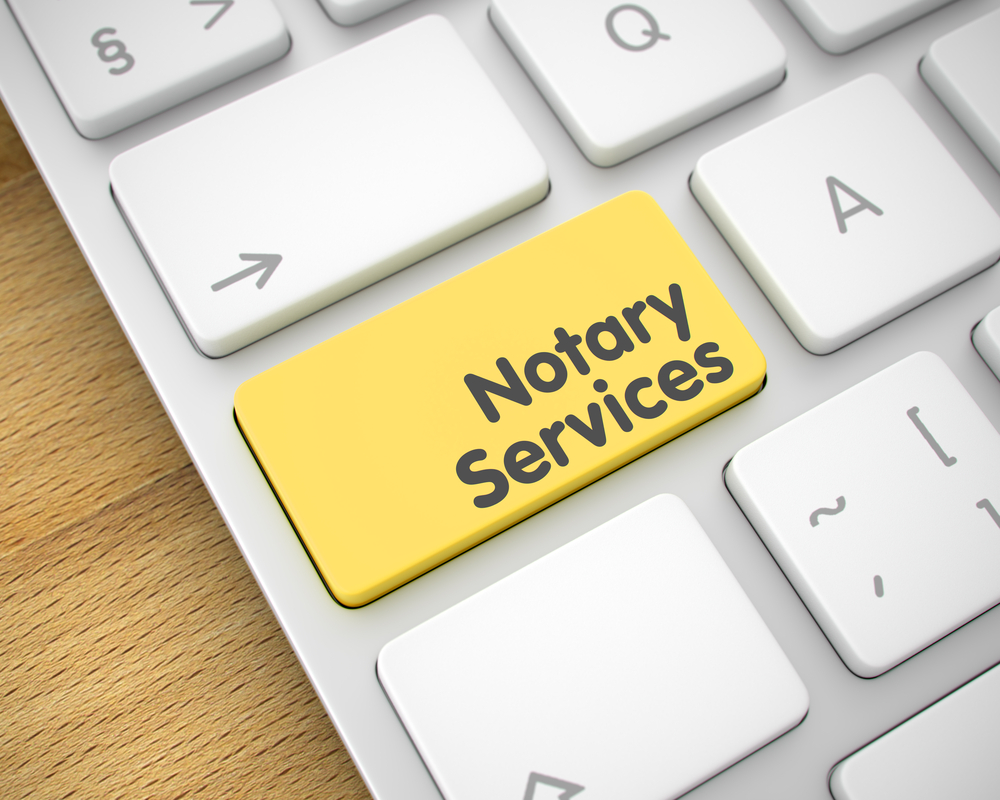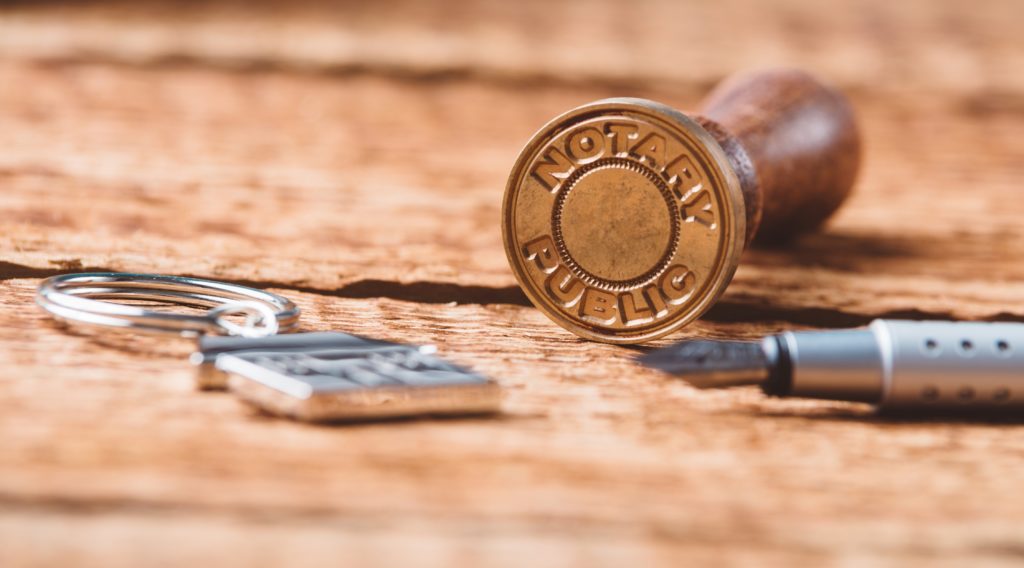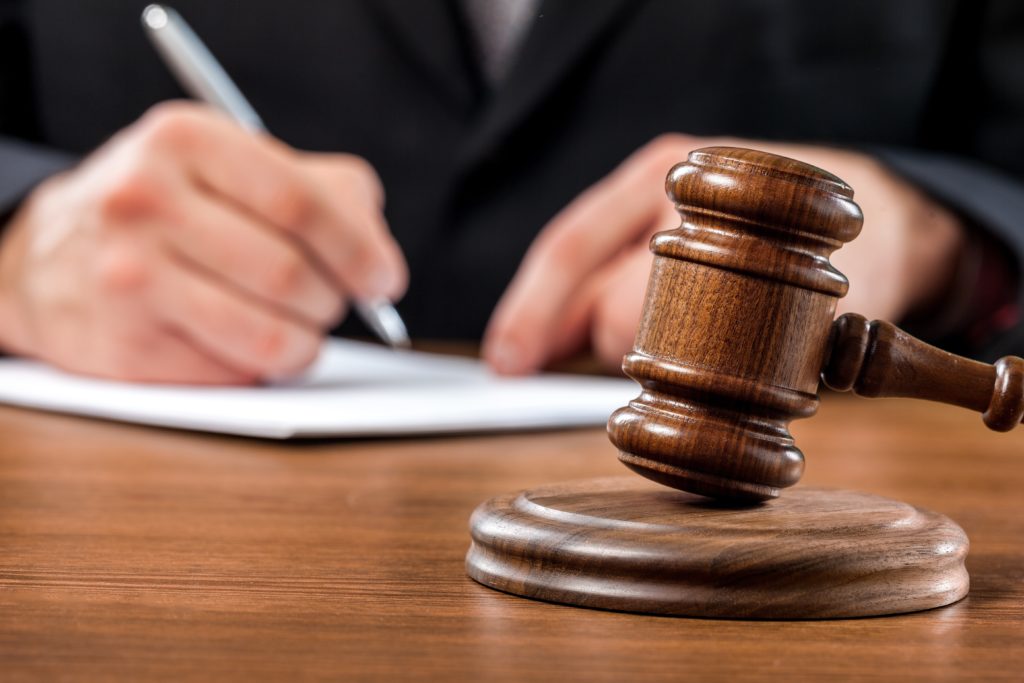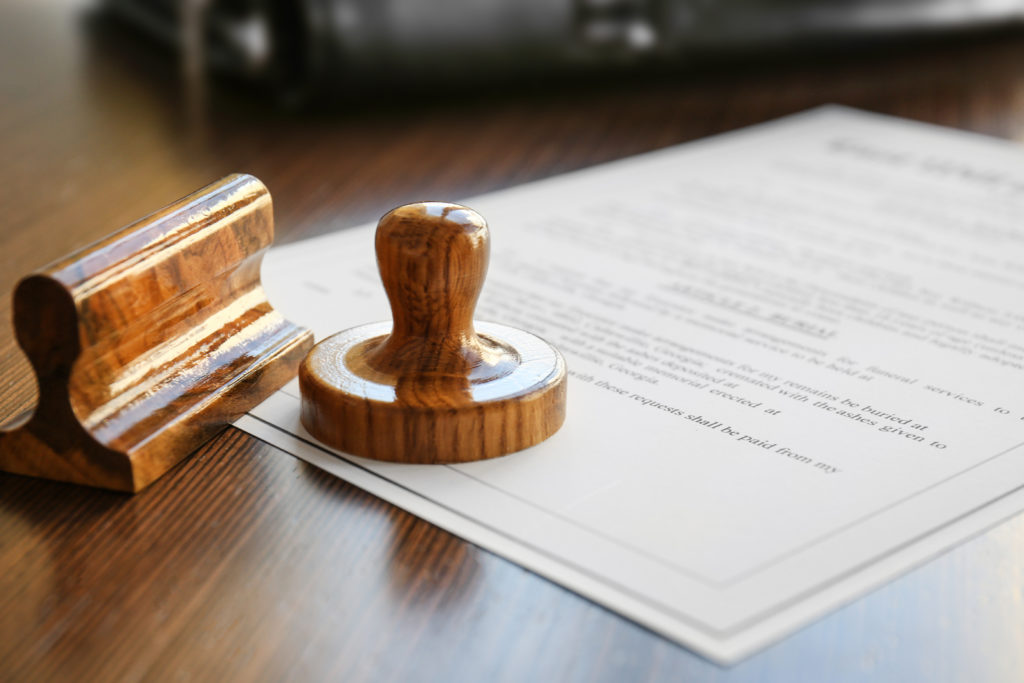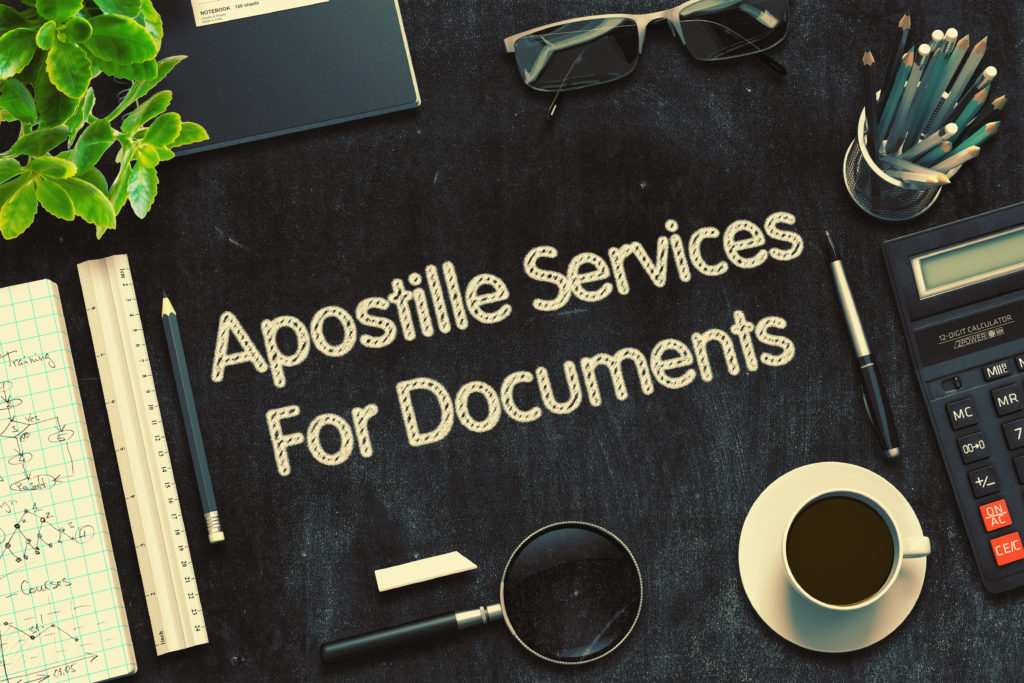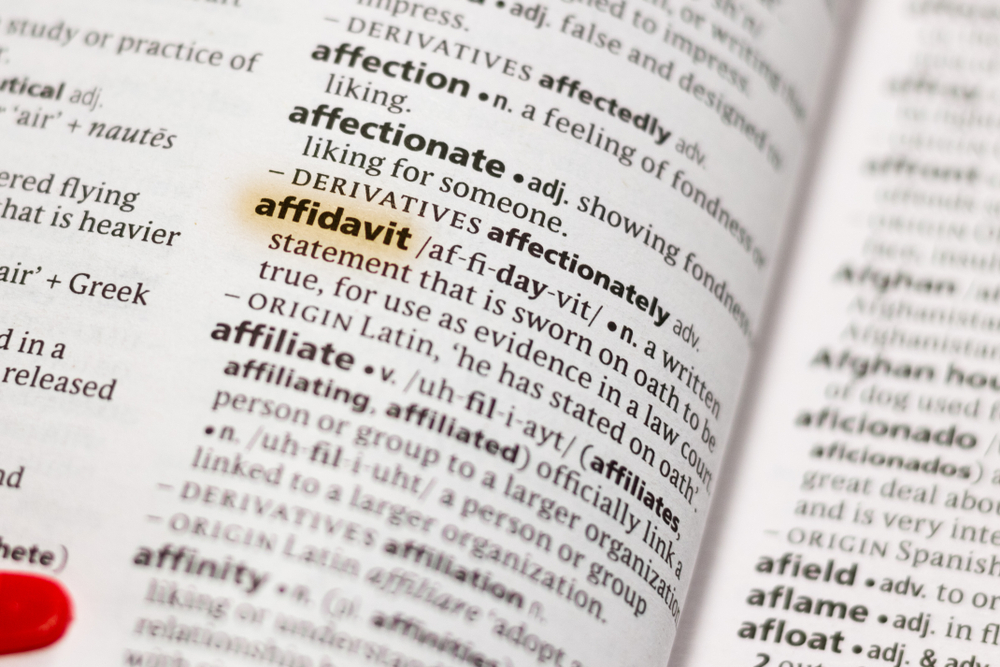Life is full of highs and lows – and it is simply a fact that these experiences often come with a boatload of paperwork. Often times, certain documents will require you to visit a notary public. While notarizations are relatively simple transactions, they carry significant legal weight. Better yet, they are easier to acquire than ever. In your notary search, you may even come across an “online notary”. However, the services of an online notary are not as convenient as they may seem. Read on to find out everything you need to know about proper notarizations.
What is a Notary?
Even if you have utilized the services of a notary, you may be unclear on what their true purpose is. You have likely gone to an office where a stranger watched you sign a piece of paper. Then poof! The notary stamps the document and all the sudden it has more legal clout.
Notaries are actually important soldiers in the fight against fraud. The primary role of a notary is to confirm a signers identity. Verify someone’s identity involves more than just checking a photo i.d. card. In fact, notaries confirm that someone understands what they are signing, and is choosing to do so willingly.
How to Get Something Notarized
Now that we know what a notary is, let’s talk about what happens during a notarization. First of all, a notary will check the signer’s valid photo i.d. to confirm their identity. Secondly, the notary will ask the signer if they understand the contents of the document they are signing in full. It is important to note that it is not the role of the notary to explain the contents to them (more on that later). Once they have confirmed understanding, the notary will make sure the signer is choosing to sign at their own free will.
Then the necessary parties will sign the document. Finally, the notary will sign and stamp a notarial certificate. This piece of paper is the crown jewel of a proper notarization.
What Should I Bring to A Notarization?
In order to efficiently execute a notarization, it is always best to come prepared for the occasion. A few simple steps can help save you valuable time and money in the notary process. First and foremost, you need to bring a few things with you to your appointment.
1. The Document
Have you ever torn your house apart looking for your sunglasses, only to find them sitting atop your head? We have all made silly mistakes like this, we are human after all! That is to say, you would be surprised how often people show up to get something notarized only to realize they left it sitting at home. Be sure to triple check you have the document with you before heading to your appointment.
Bonus time saver! Be sure to fill everything out before hand. For example, basic information like name, address, and contact info. However, save the actual signing for your meeting. Many states require you be in the physical presence of the notary when signing the document. Furthermore, take a few minutes to read over and double check everything is in order in your document. That way, if you have any questions about the contents, you can consult your lawyer before you visit the notary.
Notary vs. Lawyer
Let’s take this opportunity to quickly discuss the difference between a notary public and a lawyer. As previously stated, a notary cannot legally advise upon the contents of a document they are notarizing. Unlike a lawyer, a notary is not trained in the intricacies of the law. Lawyers and attornies undergo years of rigorous education and must pass the state bar exam to practice law. Notaries, on the other hand, will sit through a maximum of six hours worth of training. Furthermore, most states do not even require notaries to take an exam.
Therefore, if the document you need notarized is full of complex legal jargon – be sure to consult your lawyer prior to your appointment.
2. Proper Photo Identification
You have your document and you fully understand everything in it, check! Next, you need to bring along a proper form of current, valid photo identification. Necessary elements of an acceptable i.d. card are:
- A Recent Photo – Sadly, your birth certificate and grocery store club card do not qualify as acceptable forms of identification. The card should have a clear and accurate photo of you
- A Brief Physical Description – Bonus points for i.d. cards that include a basic physical description. Hair color, eye color, height, and weight are typical examples.
- Your Signature – A valid identification card should also include your signature. This adds an extra layer of fraud protection, so the notary can compare your i.d. signature to the document you are signing.
- Authority of Issue – Such as the state you are registered to drive, or the branch of the military you are serving in.
A valid passport or driver’s license are the most commonly accepted forms of identification. Check with your local notary to confirm acceptable forms of identification in your state.
3. Everyone Who Needs to Sign
Very often, notarizations require the signature of more than one party. If that is true in your case, bringing everyone involved to the same notary appointment can increase efficiency.
However, if that is impossible, you can have a document notarized more than once. In fact, different notaries can even perform the service. This is typically the case when signing parties live in different states. As you may suspect, this drastically increases the amount of time this process takes. Furthermore, it is important to understand that as the document goes through these notarizations, the content must stay the same. Any and all changes or amendment would call for the whole process to start over again. This protects the earlier signers from unknowingly accepting terms they did not originally agree to.
4. Payment for the Notary
The final piece to the notarization prep puzzle is bringing payment for the notary services. Typically, notaries charge on a per-signature basis. Most states mandate a legal maximum that notaries can charge customers. In California, for example, a notary cannot charge more than $10 per signature. We will discuss where to find a notary near you and the ranges in which they may charge, later on in this article.
Online Notary: Too Good to Be True
Hooray! We have now officially detailed what a notary is and what happens during a notarization. Therefore, we can finally talk about the notorious “online notary”. Simply put, websites offering the services of a notary completely online are simply not legal.
As we have laid out in detail, a vital element of a proper notarization is prooving the signer’s identity. While emails and the internet make this possible remotely, it is still not considered a viable notary transaction. Furthermore, most states require that you be in the physical presence of a notary when you sign the actual document. No, Facetime and Skype do not count!
Some states have been working on making remote notarizations legal, but it is still unacceptable in most states in the United States. Therefore, save yourself more hassle and legal drama by visiting a notary public the old fashioned way: in person.
Legal Language Services has a wonderful breakdown of the legal discrepancies of online notarizations. We are happy to report the magical services of mobile notaries not only exist but are completely legal. Read on to find out more about mobile notary services later in this article.
How to Sign Documents Online
To be clear – there are a number of reputable sites and services that allow you to sign documents online. DocuSign and Lumin PDF are two great examples. However, these sites simply offer ease and efficiency when it comes to signing documents. That is to say, signing and sending documents online is totally legal. However, if any of those documents require notarization, you still require the services of an in-person notary.
Many documents do not require notarization, and therefore using these signing services can be a helpful tool. You can save time and paper (yay for eco-friendly options!) by using these services as well.
Types of Notarizations
If you are in need of notarization, it is helpful to know that there are different types. There are three different types of notarizations: acknowledgments, jurats, and certified copies.
1. Notary Acknowledgment
An acknowledgment is the most common type of notarization. The process described above (in-person identification, willingness to sign, signing and stamping) is considered a standard notary acknowledgment. Certain details of that process may vary slightly depending on the state in which the notarization is taking place.
This type of notarization is often applied to documents dealing with ownership such as:
- Property deeds
- Title Transfers
- Powers of Attorney
- Wills and Trusts
- …and more!
The notary will positively identify the signer and their own willingness to sign. The signer will then acknowledge the contents of the document and true and full by signing in front of a notary.
2. Jurat Notarization
A jurat notarization includes the same steps as an acknowledgment, with one notable exception. In a jurat notarization, the signer will also verbally administer an oath or affirmation. This attribute is why a jurat is sometimes referred to as a “verification upon oath or affirmation”.
An oath is a verbal declaration of truth, specifically pledging honesty before God or a higher power. An affirmation, on the other hand, carries the same weight, but with no reference to spiritual power. It is entirely up to the signer whether they wish to acknowledge an oath or an affirmation.
A common oath will state, “Do you solemnly state that the evidence you shall give in this issue shall be the truth, the whole truth, and nothing but the truth, so help you God?” The notary will read the aforementioned statement and the signer must respond verbally with “yes” or “I do”. Physical acknowledgments, such as a nod of the head, are not acceptable.
Some notaries may additionally ask the signer to raise there right hand when pledging their oath. While not legally required, this simple action helps emphasize the seriousness of their promise.
Jurat notarizations are commonly used in matters dealing with the court system. Documents such as affidavits and depositions are commonly subject to jurat notarizations.
3. Certified Copies
The notarization of certified copies is the least common of the three types of notarizations. In fact, many states do not accept or allow certified copies. In the states that do allow them, a certified copy will confirm the authenticity of a reproduction of a document. It is imperative that the copy is identical, authentic, and complete. University degrees, passports, and other uniquely vital documents may be subject to a certified copy.
Notary Near Me
As we have clearly established in this article, the use of an online notary is not recommended (or legal in most states). Instead, you need to utilize the services of a notary public in person. You may be asking yourself “where can I find a notary near me?”. Fortunately, there are quite literally millions of certified notaries in America. Therefore, you likely do not have to look too far to find one in your area. Below are a few common places you can find a notary public.
1. The Bank
Considering you can deposit checks and transfer money online and through apps, it may have been a while since you have actually stepped foot inside of a bank. However, if you need a document notarized, it will be worth your while to take a trip to the bank! Most banks have a certified notary public on staff and on site at all times. Better yet, if you are an account holding member of said bank, you may qualify for complimentary notary services.
2. Certain Mail Stores
Certain mail establishments like the UPS Store and Mail Boxes Etc. will offer notary services to customers for a small fee. You can take care of all of your logistical needs (mailing, packing, etc) and take care of notarizations all in one place.
Moreover, these stores typically do not require appointments for notary services. Better still, these type of stores typically operate during extended business hours. This gives you the gift of time and flexibility in your notarization journey.
3. The Library
This may sound like a novel concept (pun intended), but libraries are a great place to check out more than just books. Treat yourself to the joys and smells of real-life books, and get your document notarized too! Many public libraries offer free or low-cost notary services. You don’t even need a library card to access this service! Although, you should get one – because that is free too. Enjoy your now expanded world of endless books, movies, notary services and more at your local library.
4. Local Government Offices
Whether you live in a small town or a big city, you likely have a government office or two in your midst. Some common examples are Town Hall, City Hall, your county courthouse, or the county clerks office. According to www.thebalanceeveryday.com, the New York City county clerk’s office offers free notary services to the public.
5. Businesses Near You
When beginning your search for a notary, you often have to look no further than your local businesses. Here are a few local places you may find a notary:
- Car dealerships
- Home and/or Auto Insurance Agencies
- Real Estate Offices
- AAA Branches
- Some Police Stations
- Your place of business! (someone in your office is likely a notary, you won’t even have to leave work!)
For many businesses, it is ideal to have a notary on staff for in-office notarizations in a snap. Keep in mind, notaries are servants of the public. Therefore, even if you are not a customer or a client of any of the aforementioned institutions, their notary will still have to help you.
6. Hotels
Whether you are traveling for business or pleasure, hotels can be a great place to get a document notarized on the go. Many hotels, particularly higher end hotels, offer a notary on site as a convenience to guests. If your hotel does not have this service, no need for dismay. Your hotel’s concierge or front desk attendant can likely point you in the direction of a local notary.
7. Mobile Notary
For the ultimate in ease and efficiency, consider hiring a mobile notary. Especially prevalent in booming metropolitan areas, mobile notaries will come right to your home or office. This service not only saves you time but assures a legal notarization. Remember, most states require notarizations to happen in the physical presence of a notary. Therefore, online notaries should be avoided.
How to Become a Notary
Perhaps at some point in this article, you pondered becoming a notary yourself. With over four million notaries in America, you are in good company. While not a career for most, being a notary is a marketable skill and a great way to make a little extra money. Notary laws and training vary from state to state. Naturally, this means the steps to becoming a notary vary as well. Below will illustrate the steps using Texas and Florida as examples. If you live elsewhere, NationalNotary.org has a great state-specific guide to becoming a notary.
Texas Notary – Steps for Certification
- Meet State Qualifications – At least 18 years of age, resident of Texas, no criminal record
- Procure a Surety Bond – This protects the public should you make a notarization error. In Texas, your bond needs to be $10,000
- Complete the Application – You can even apply online! The application fee is $21 in the state of Texas
- Take your Notary Oath – Once your application is accepted, you will receive a commission certificate. You will then take that certificate to a certified Texas notary who will administer your oath, as well as notarize your commission
- Procure Your Notary Supplies – You will need to purchase a notary journal and personalized notary seal (stamp).
- Purchase Insurance – You may recall notary bonds are mandatory and protect the public. Notary insurance, on the other hand, is optional, but a good idea to protect yourself
You will likely notice that training and testing are not included in the above list. In the state of Texas, training and passing a notary exam are not required. However, it is a good idea to take advantage of state-provided Texas notary training tools.
Notary Public Florida
To illustrate the nuances between state-mandated steps to becoming a notary lets take a look at Florida. The steps are very similar, with one notable exception. A state provided notary training is required in Florida. The course is a quick three hours, and can even be taken online. Before your application will be accepted, you must complete the appropriate training. However, in Florida, you are not required to take and pass an exam testing the information you learned in your training.
Online Notary: In Conclusion
While getting a document notarized is a simple process, it is important to do it correctly. In order to do so, you want to visit an established local notary in person. The cornerstone of a successful notarization is proper identification of the signer. Moreover, this should legally be done in the physical presence of the notary. Therefore, you should avoid using websites boasting with “online notarizations”. If you are in a pinch consider utilizing the services of a mobile notary. They will come directly to you, and therefore meet the standards of a legal notarization.
Sources
https://www.nationalnotary.org/knowledge-center/about-notaries/what-is-notarization
http://www.notarysuccess.com/notary_acknowledgment.html
https://www.thebalanceeveryday.com/where-to-notarize-affidavit-896914
https://www.nationalnotary.org/notary-bulletin/blog/2015/05/your-guide-notary-oaths-affirmations
https://www.nationalnotary.org/texas
